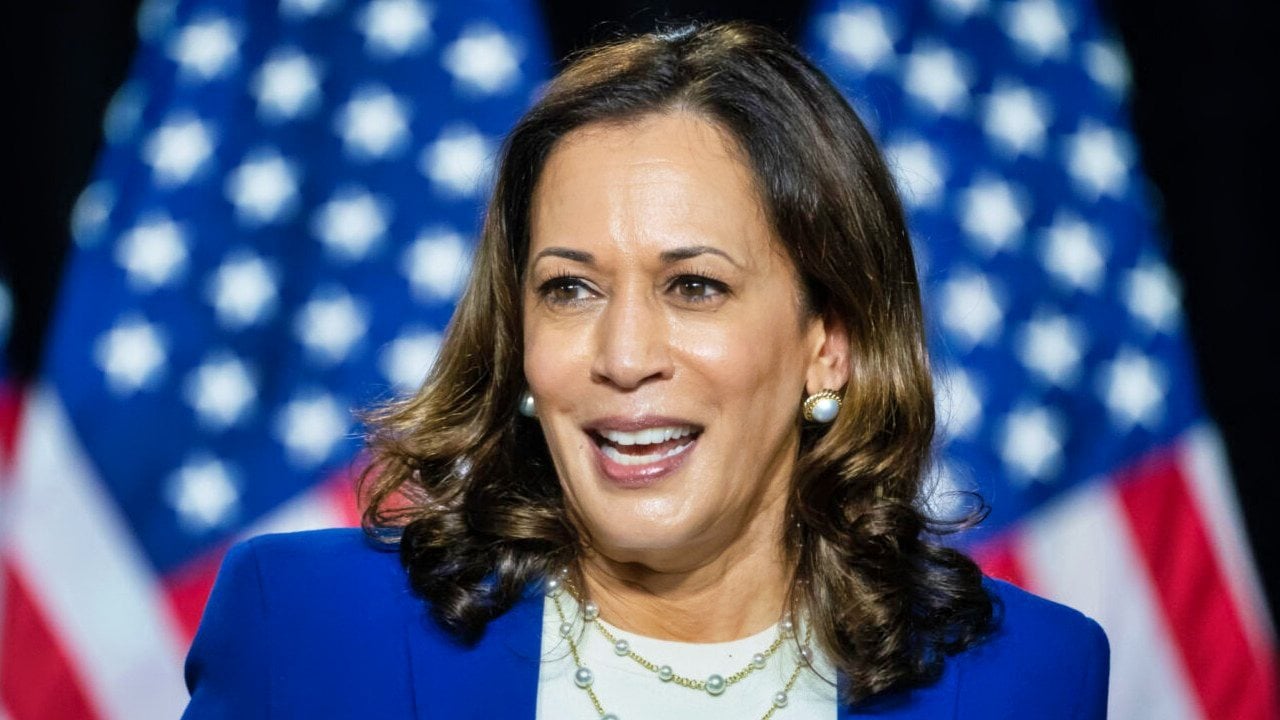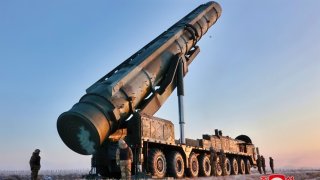Kamala Harris and North Korea: Gaming Out the Possibilities
First, notwithstanding the very tight grip the North has on its nuclear weapons – now even part of its constitution – the long-term goal, the vision of US policy must be a nuclear weapons-free Northeast Asia.
We could be interested in how a Harris Administration would approach policy on North Korea, but that would require knowing something about how the current Vice President thinks about North Korea, independent of President Biden and his top foreign policy advisors. I do not think we know that yet. So, I would rather think about how the U.S. would want a Harris Administration to deal with North Korea. That, we should know something about.
First, I would want the new administration to take the preverbal “fresh look” at Northeast Asia, the distribution of power, America’s interests, threats to our national security, the interests of our allies, the health of our alliances, what we think is North Korea’s Grand Strategy and the posture of other great powers. That is not all, but it is a good start to getting the policy right.
We start then by observing that times have changed. None of the answers to those questions are the same as they were thirty, twenty, or even ten years ago. That is most surprising when thinking about international structure which, for good reason, we do not expect to change often or quickly. But if a rising China and declining America may still be the headline, how this would play out in the dominant potential regional contingencies -- Taiwan and the Korean Peninsula -- is not at all clear. America has been paying closer attention to Asia since the famous pivot and it shows. And China, for all its size and strengths, has shown weakness as well, particularly internal vulnerabilities.
America’s Asia Strategy still focuses on countering Beijing’s moves and embracing Japan as an essential ally, but it has shown new interest in reassuring South Korea and rediscovering the possibilities with Australia and the Philippines. But if America’s interests have perhaps evolved a bit, the threat to its national security from North Korea has fundamentally changed.
Thirty years ago, the U.S. made a deal with North Korea designed to end its ambition of becoming a nuclear weapons state for the price of two nuclear reactors. That deal is long gone and the North now has fifty nuclear weapons and the capacity to build many more, as well as ballistic missiles of various ranges, including Intercontinental Ballistic Missiles (ICBM) that put the entire American nation at risk of incineration. That’s new. That reality should be the basis for a new approach to North Korea by the Harris Administration.
To do what needs to be done with diplomacy, a new administration has to educate the American people, including what has mysteriously been called the “attentive elite.” A little-known fact, even by those supposedly attentive and elite, is that the U.S. cannot defend itself from even a moderately sophisticated ICBM attack – one with many missiles, some with Multiple Independently-targetable Reentry Vehicle (MIRV) warheads, some with decoys – such as might be launched by Russia, China or North Korea tomorrow. We do not now, nor have we ever relied on defense for our security from nuclear weapons attack; we rely on deterrence.
Deterrence, unlike defense, is a psychological concept. It promises a potential attacker certain punishment beyond the value of any possible gain it might realize by attack. We are confident that Putin is deterred from attacking the U.S., and that Xi is deterred too. We think Kim should be as well. But the truth is that we are less confident about Kim Jong Un, his plans, and his risk propensities. Might he think that he could seize an island off the coast of the peninsula, deterring a South Korean response with short-range ballistic missiles armed with nuclear weapons, and deter an American response by threatening the U.S. with nuclear-armed ICBMs? The South Koreans might well ask whether the U.S. would trade an American city for a South Korean island – a version of the French query during the Cold War: would America trade New York for Paris?
So, what are the implications of all this? First, notwithstanding the very tight grip the North has on its nuclear weapons – now even part of its constitution – the long-term goal, the vision of US policy must be a nuclear weapons-free Northeast Asia. If the U.S. aims lower, we risk South Korean and Japanese nuclear weapons programs, and perhaps any hope of stopping nuclear proliferation worldwide. And we live with deterrence where we would rather not.

Second, we must persuade China that its interests and ours here are hardly congruent, but we share a common interest in avoiding a conflict on the peninsula. In addition, China is opposed to anything that would draw additional U.S. military or naval forces to the region, such as North Korean adventurism. As for Russia, we should not make too much of the new alliance between Pyongyang and Moscow, but we should warn the Russians of any plans it may have to pay for North Korean conventional arms by assisting with Weapons of Mass Destruction (WMD).
Finally, the Harris administration’s policy goal must be the normalization of U.S. and South Korean relations with North Korea, beginning with a peace treaty to replace the armistice that suspended the Korean War. Prior steps could be to end a sanctions regime that has outlived its usefulness, and a hard look at our military exercises to avoid unnecessary provocation. This all has to be done with a clear commitment to a deterrent posture that leaves no doubt in North Korean minds of the consequences of nuclear use and does the same in reassurance to South Koreans.
About the Author:
Robert Gallucci is a professor at Georgetown University’s School of Foreign Service. He led the negotiations that resulted in the Agreed Framework with North Korea in 1994. He also served as Ambassador at Large and Assistant Secretary of State for Political-Military Affairs. He subsequently served as President of the MacArthur Foundation.
Image Credit: Creative Commons and/or Shutterstock.


